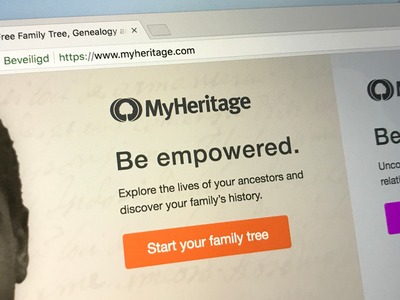Why You Should Learn Your Family’s History
Discovering Your Past, Understanding Your Present, Shaping Your Future
In today’s fast-paced world, where we’re constantly looking toward the future, taking time to explore our family history might seem like a luxury. However, understanding where we come from and the stories of those who came before us holds profound importance for our identity, our health, and our sense of place in the world. The study of family history offers far more than just names and dates on a family tree – it provides insights into who we are and helps us understand the forces that shaped our family’s journey through time.
At Genealogy Insights, we’ve witnessed countless times how discovering family history transforms lives and strengthens family bonds. The impact of understanding our ancestors’ stories extends far beyond simple curiosity about the past. It provides practical benefits for our present lives and leaves a lasting legacy for future generations.
Strengthening Personal Identity and Family Connections
Understanding our family history helps ground us in our own identity. When we know the stories of our ancestors – their struggles, triumphs, and everyday lives – we gain a deeper appreciation for our place in the continuing family narrative. Research has shown that children who know their family history demonstrate greater emotional resilience and a stronger sense of being part of something larger than themselves.
The process of discovering family history often brings current family members closer together. As stories are shared and memories are recalled, bonds strengthen between generations. Grandparents share tales of their youth, parents recall family traditions, and children develop a curiosity about their heritage. This sharing of family history creates meaningful connections that transcend the ordinary conversations of daily life.
Moreover, understanding our family history helps us recognize patterns across generations – both positive traditions we might want to preserve and challenges we might want to address. This knowledge empowers us to make conscious choices about the legacy we want to create for future generations.
Health Awareness and Genetic Heritage
Family history research provides crucial information about our genetic heritage and potential health predispositions. Understanding patterns of health and longevity in our family tree can alert us to potential genetic health risks and enable proactive medical care. Many medical professionals now recognize the importance of detailed family health histories in preventive medicine and treatment planning.
Beyond genetic health factors, studying our ancestors’ lives can reveal environmental and lifestyle factors that might influence family health patterns. Understanding the occupational hazards our ancestors faced, the regions where they lived, and the health challenges they encountered can provide valuable context for our own health decisions.
The integration of DNA testing with traditional genealogical research has revolutionized our ability to understand our genetic heritage. This combination of historical research and genetic science offers unprecedented insights into our ancestral origins and helps us make informed decisions about our health.
Cultural Heritage and Historical Context
Learning about our family history provides invaluable context for understanding our cultural heritage. Many families have lost touch with their ancestral cultures through migration, assimilation, or the simple passage of time. Researching family history can help recover these lost connections and provide a richer understanding of the traditions and values that shaped our family’s development.
Family history research also offers a personal window into historical events. Reading about historical events in textbooks is one thing, but discovering how our own ancestors experienced these events brings history to life in a profound way. Whether it’s learning about an ancestor’s immigration journey, their experience during major historical events, or their participation in significant social movements, these personal connections to history deepen our understanding of both past and present.
Psychological and Emotional Benefits
Research has demonstrated that knowledge of family history correlates with higher self-esteem and better emotional adjustment. Understanding the challenges our ancestors overcame can provide inspiration and perspective for facing our own difficulties. The stories of resilience, determination, and adaptation in our family history can serve as powerful examples for navigating life’s challenges.
For many people, researching family history provides a sense of connection to something larger than themselves. This can be particularly meaningful in times of personal difficulty or social isolation. The process of discovering and documenting family history can also provide a sense of purpose and accomplishment, contributing to mental well-being.
Preserving Family Legacy
Each generation has the responsibility and opportunity to preserve family history for future generations. Without conscious effort to document and preserve family stories, photographs, and documents, crucial information can be lost forever. The digital age offers unprecedented opportunities to preserve and share family history, but it requires active effort to collect and organize this information.
Documenting family history also provides future generations with a sense of their place in the family narrative. The stories we preserve today will help our descendants understand their own heritage and identity. This preservation of family history creates a bridge between past and future generations, maintaining important connections across time.
Practical Applications of Family History
Beyond personal and emotional benefits, knowledge of family history can have practical applications. In some cases, family history research can reveal potential inheritances or land claims. It can help establish eligibility for membership in heritage organizations or citizenship in ancestral countries. Understanding family history can also help in medical diagnosis and treatment planning.
Family history research can also reveal important legal and financial information. Property records, wills, and other legal documents discovered through genealogical research might have current legal or financial implications. This practical aspect of family history research can sometimes lead to unexpected benefits for current family members.
Educational Benefits
Researching family history develops valuable research skills and critical thinking abilities. The process of verifying information, analyzing documents, and drawing conclusions from evidence provides excellent practice in historical analysis and critical thinking. These skills can be valuable in many areas of life beyond genealogical research.
For children and young people, involvement in family history research can spark interest in history, geography, and social studies. Understanding their personal connection to historical events and places can make these subjects more engaging and meaningful. Family history research can also improve writing skills through the process of documenting and sharing family stories.
Your family’s history is waiting to be discovered. Let us help you uncover the stories, connections, and insights that will enrich your understanding of your family’s unique heritage.





